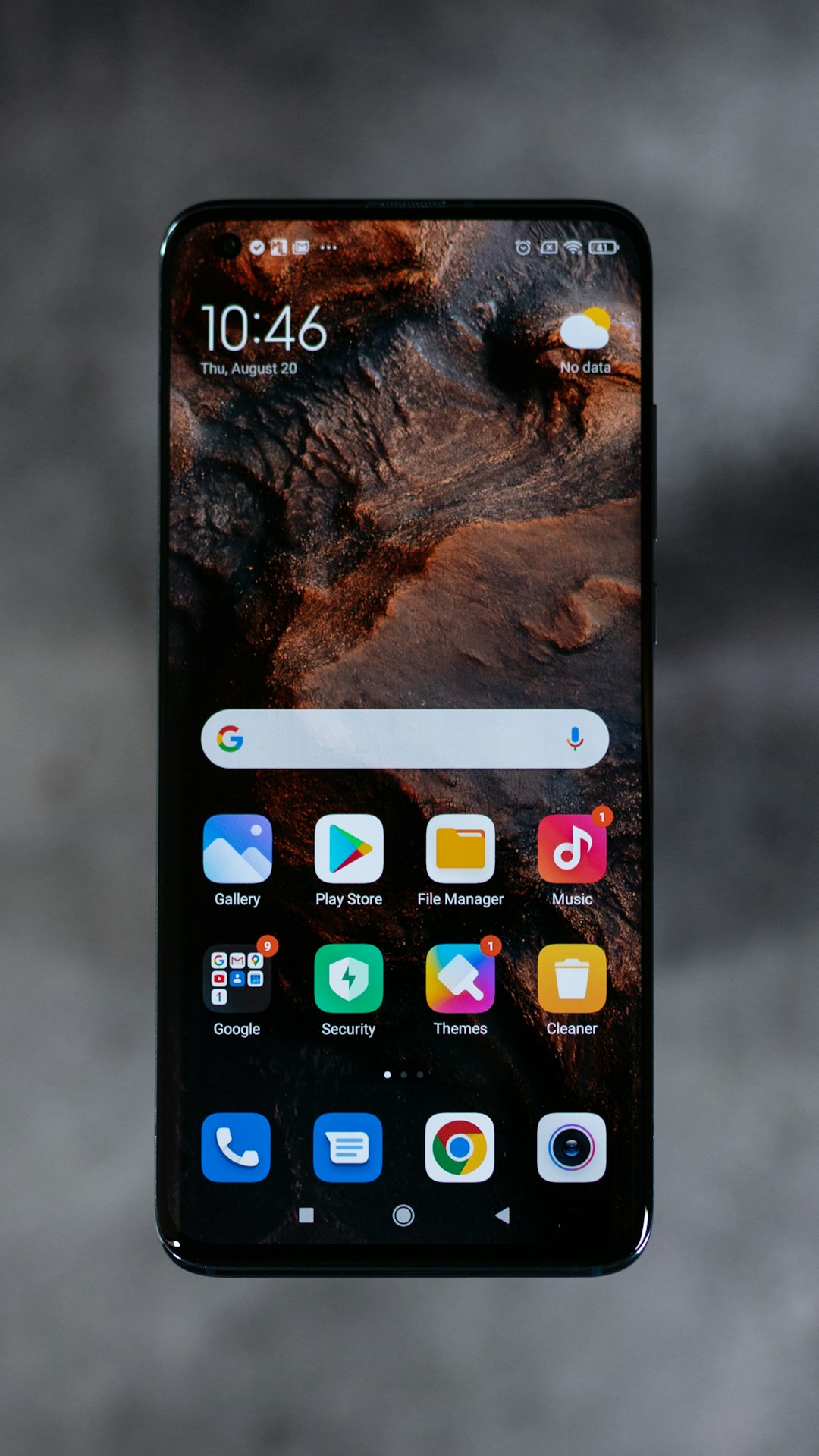In the digital age, unwanted robocalls and telemarketing have become a pervasive issue in Colorado. Understanding and navigating these laws is crucial to protect consumers from aggressive marketing tactics. This article explores Colorado’s regulations surrounding robocalls, highlighting common violations, penalties, and consumer rights. We delve into legal considerations, including when robocalls are permissible, and provide practical guidance on reporting violations and finding the right legal support. Additionally, we showcase success stories of litigation against robocallers, empowering Coloradans to assert their rights with robocall attorneys and law firms.
- Understanding Robocall and Telemarketing Laws in Colorado
- Common Violations and Penalties for Robocalls in CO
- When is it Legal to Receive Robocalls?
- Do Not Text Lawyer/Attorney/Law Firm in Colorado: Rights and Protections
- Navigating a Robocall Attorney or Law Firm in Colorado
- Documenting and Reporting Robocall Violations
- Consumer Tools and Resources for Stopping Unwanted Calls
- Case Studies: Success Stories of Litigating Against Robocallers in Colorado
Understanding Robocall and Telemarketing Laws in Colorado
In Colorado, both robocalls and telemarketing activities are subject to specific legal frameworks designed to protect consumers from unsolicited communication and deceptive practices. The state’s laws regarding Do Not Text initiatives, including restrictions on automated phone calls (robocalls) and direct marketing calls (telemarketing), are stringent. Residents of Colorado who wish to assert their rights against unwanted robocalls or telemarketing can seek legal assistance from experienced do not text lawyers or robocall attorneys in the state.
These legal professionals specialize in navigating the intricacies of Colorado’s Do Not Text law firm guidelines and can provide guidance on how to litigate against violators effectively. If you have received unsolicited calls, texts, or other forms of communication from telemarketers or robocallers, it is advisable to consult with a local lawyer for robocall who understands the state’s regulations. By taking legal action, Colorado residents can ensure their rights are respected and hold offending parties accountable under the law.
Common Violations and Penalties for Robocalls in CO
When is it Legal to Receive Robocalls?
In Colorado, the legality of receiving robocalls is largely governed by the Telephone Consumer Protection Act (TCPA). Generally, it’s illegal for businesses to make automated calls to consumers without their prior consent, often known as robocalls. However, there are exceptions. Calls from companies with which you have an existing business relationship, non-profit organizations, and government agencies are usually allowed under certain conditions.
If you’re receiving robocalls promoting legal services or seeking a lawyer in Colorado, it’s crucial to know that you can take action. If you believe these calls violate the TCPA, you may file a complaint with the Federal Trade Commission (FTC) or contact a robocall attorney in Colorado who specializes in handling such cases. Remember, if you don’t want text messages from lawyers or law firms in Colorado, you can also register your number on the Do Not Text lists by visiting Donottext.org, which includes listings for both telephone and text messages.
Do Not Text Lawyer/Attorney/Law Firm in Colorado: Rights and Protections
In Colorado, just like in many other states, there are strict regulations against unwanted text messages from attorneys or law firms, often referred to as robocalls. The Do Not Text Lawyer/Attorney/Law Firm rule is a powerful tool for residents of Colorado to protect themselves from these intrusive and potentially fraudulent communications. Under the Telephone Consumer Protection Act (TCPA), individuals have the right to opt-out of receiving automated text messages related to telemarketing or advertising purposes, including legal services.
If you’ve been bothered by unsolicited texts from lawyers or law firms in Colorado, know that you’re not alone. Many Coloradans are taking action against these violations by filing complaints with the Federal Trade Commission (FTC) and seeking legal counsel for potential collective action. A lawyer specializing in robocall lawsuits can help hold these entities accountable and secure compensation for affected individuals. Remember, don’t hesitate to assert your rights; there’s a strong chance you could be entitled to monetary damages if your privacy has been invaded by unwanted text messages from law firms or attorneys in Colorado.
Navigating a Robocall Attorney or Law Firm in Colorado
Navigating a Robocall Attorney or Law Firm in Colorado starts with understanding your rights. If you’ve received unsolicited phone calls from automated systems, often known as robocalls, promoting products or services, you’re not alone. In Colorado, as in many states, these calls are regulated to protect consumers from intrusive and deceptive practices. If a company violates these regulations, it’s crucial to know that you can take action by contacting a Do Not Text Lawyer or Do Not Text Attorney in Colorado who specializes in robocall cases.
When looking for legal assistance, consider firms focused on consumer protection law, especially those with expertise in Do Not Text law firms Colorado. These professionals can help you file complaints with relevant regulatory bodies and potentially pursue litigation if necessary. Remember, states have specific laws regarding robocall attorneys Colorado and lawyers for robocall Colorado, so ensure your chosen legal representative is well-versed in these regulations to provide the best possible representation.
Documenting and Reporting Robocall Violations
When facing persistent or illegal robocalls and telemarketing in Colorado, documenting and reporting these violations can be a powerful step. Consumers are encouraged to keep a record of suspicious calls by noting the date, time, and content of each interaction. Capturing call records, including any automated messages or prerecorded advertising, is essential evidence for potential legal action. Many robocall attorneys and law firms in Colorado specialize in protecting consumers’ rights and can guide individuals on how to report these violations effectively.
Reporting these incidents to the appropriate authorities, such as the Federal Trade Commission (FTC) or the Colorado Attorney General’s office, is crucial. Additionally, consumers can utilize dedicated online platforms or apps that help identify and block unwanted calls. By reporting and documenting robocall violations, individuals not only protect themselves but also contribute to a collective effort to hold telemarketers accountable, potentially leading to more stringent regulations for these practices. Remember, if you feel your rights have been violated, consider reaching out to a local Do Not Text lawyer or Do Not Text attorney in Colorado who specializes in robocall cases.
Consumer Tools and Resources for Stopping Unwanted Calls
Case Studies: Success Stories of Litigating Against Robocallers in Colorado
In Colorado, numerous individuals have found success in taking legal action against robocallers and telemarketers who violate consumer rights. Case studies reveal that consumers equipped with knowledge about their rights and access to robust legal representation can effectively challenge these intrusive calls. For instance, several plaintiffs joined forces to file a class-action lawsuit against a major telemarketing company for repeated unwanted text messages promoting legal services using the “Do Not Text” list registered by the Colorado Public Utilities Commission. This collective action resulted in a substantial settlement, providing relief not only to the plaintiffs but also setting a precedent for future cases.
These success stories encourage consumers who have experienced similar violations to reach out to reputable Do Not Text Lawyer or Do Not Text Attorney firms in Colorado. Specialized robocall attorneys and law firms in Colorado are well-versed in navigating complex legal landscapes and can offer tailored strategies to combat these nuisance calls. By engaging such professionals, individuals not only protect their rights but also contribute to deterring future violations, ensuring a safer and more peaceful communication environment for all Coloradans.






